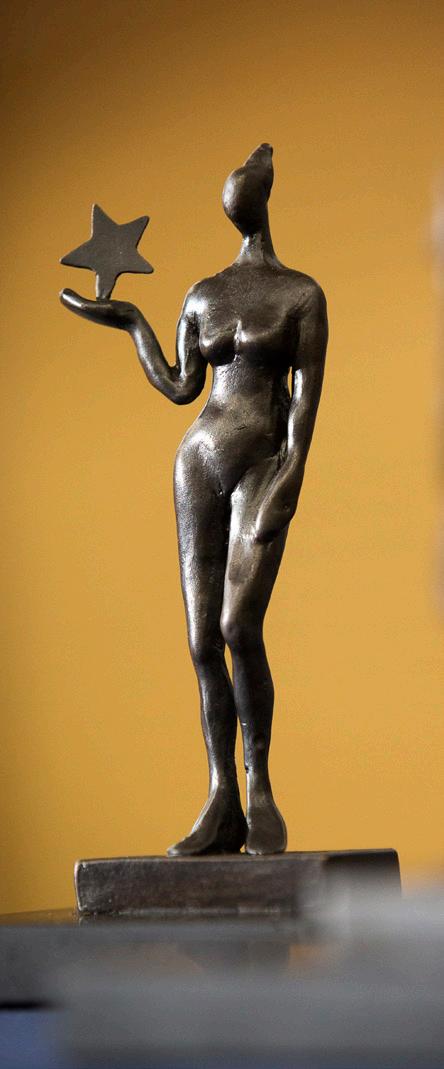
4 minute read
THE POSITIVE POWER OF CHANGE IN EDUCATION
As with many women in the world of history, Coretta Scott King was the lesserknown wife of Dr Martin Luther King. She was a writer, and the architect of Dr King’s legacy, creating the King Center. Coretta was a lifelong human rights activist for social change and peace. She was among the most prominent women leaders of our time. She said: “It doesn’t matter how strong your opinions are. If you don’t use your power for positive change, you are indeed part of the problem.”
In education, there is change and to some extent there always has been. Nationally there is an ambitious strategy that we support because research indicates that achievement standards across curriculum areas, and particularly in literacy and numeracy, are declining. While not the only OECD country experiencing these declines, it has been our ambition to assist this country on a positive journey to enhance the quality and outcomes for all students across the country. Rising tides lift all ships and what we can do in the private sector is to be voices and influencers for the future. We need great young men and women who, like us, had the opportunity to thrive in schools, whether they were state, stateintegrated, or private.
Some of the problems we have relate to the pace of change and balancing consistency of learning opportunities across the country, with flexibility to address new technologies and relevant world issues impacting on the quality of life itself. This adjustment of the loose-tight challenge is difficult in an environment where the years have drifted by with a very broad state curriculum that has steadily lost its ability to define any consistency of knowledge, literacy, and numeracy acquisition. The well-known and widespread inconsistency and gap in the outcomes for children has exacerbated disadvantage and things need to change.
While we can be comfortable in our space with an International Baccalaureate Framework, clear definitions of literacy and numeracy, and the ability to enhance our curriculum breadth and depth, it is important for us to share good practice and be part of positive change for the future. We want to use our voice. Currently we have many staff working in areas that will enhance our practice, but also contribute to the wider national change initiatives.
In 2021, Diocesan teamed up with 12 state, state-integrated and private schools to develop our own collective teacher training programme. We assessed various universities and collaborated with Waikato University, which could offer approved online papers. Graduates or career changers join us for a year within each school. We interview and select our own candidates and since 2021, we have trained six teachers at Diocesan.
Across schools, we have trained 40 teachers, and 60 are participating in training this year. The trainee teachers complete online papers, and our founding schools deliver 12 professional development days over the year targeting specific areas of curriculum design, topic planning, culturally responsive pedagogy, assessment, appraisal, and ethical guidelines. Trainees learn to teach alongside our professionals and are connected to school life and our community, understanding the policies, processes, and timelines of a one-year school cycle. They receive an honorarium, have their fees paid and are bonded for two years to any one of our schools. All our candidates have been employed and we are assisting the general shortage of teachers by targeting hard-to-staff areas.
We are also delighted to be assisting a young woman to train this year. Kali Haenga is fluent in Te Reo and Ma¯tauranga Ma¯ori but did not have the opportunity to gain tertiary qualifications. With special recognition for her abilities, she is training with us, enabling her to access the salary scale alongside all other teachers for fulfilling the same role. We hope that this will ensure an equitable journey and recognition of the leader and role model she is.
Over the development of NCEA, two of our heads of faculty have been representatives on the Specialist
Experts Groups (SEG). Our Head of Faculty English, Susy Carryer, has been pivotal in the English SEG and our Head of Health and PE Faculty, Michelle Ogilvie, has been a SEG member for her subject area. While we are blessed with many specialist experts at Dio, we were delighted to contribute to the design of NCEA and to fully engage with the new changes. We have also been a pilot school for the English Level 1 new standards so have learned a lot from the changes. Being involved nationally helps us contribute as well as receive the latest information for our planning.
We are also proud of our growing commitment to Te Tiriti o Waitangi through the development and implementation of our Ma¯tauranga Ma¯ori programme that is supported through Te Whare Huia – our centre for educational leadership developed by Ma¯ori. Ashley Pihema established the centre and an outstanding programme that enables all students to learn the wisdom and knowledge of Ma¯ori. The programme also engages students in understanding the theory of knowledge – that knowledge evolves (and continues to evolve) from cultural roots in ways that explain and describe the world. With a Wa¯nanga o Aotearoa partnership, free Te Reo courses at Dio are undertaken by many staff and parents. Wherever we go in the world, understanding cultures starts with understanding our own indigenous past and present.
Our wider commitment to education extends the development of a professional culture that feeds into the future of our country. We want to fully participate in change, even though at times the implementation is rocky, slightly unpredictable, and hard. We are using our voices and the talents of many to keep our school and community a place of enrichment and enhancement, and a place of positive change.
Ut Serviamus
Heather McRae, Principal










